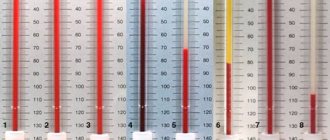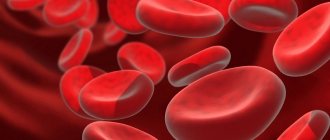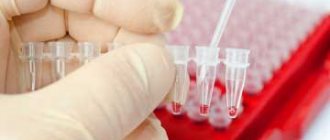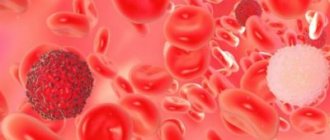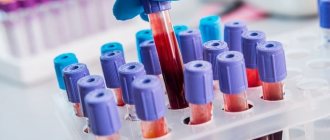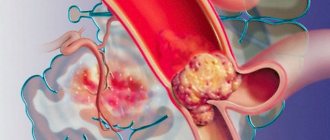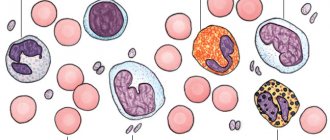You can spend hours in the gym, eat right and use only natural cosmetics - but this is not a guarantee that you will be healthy from your fingertips to the depths of your soul. Sarah Gottfried, author of the book “Tame Your Hormones: Simple Ways to Be Healthy,” which was recently published by AST, insists that to be healthy, you need to know everything about your hormonal balance. And we agree with her. While you wait for the delivery of the complete “textbook” on taming your hormones, we share with you an excerpt about cortisol. How it affects stress and the rate of aging - read below.
Normal cortisol levels in humans
For women and men, the level of the hormone in the blood is the same. It is 101.2-535.7 nmol/l in the morning until 10 o’clock. By evening, the norm will be 79.0-477.8 nmol/l. Such values are determined after 17:00.
In urine, the normal level of the hormone is 485.6 nmol/day. For saliva, the normal indicators are:
- In the morning from 8 to 10, the value should not exceed 19.1 nmol/l.
- During the day, from 14:30 to 15:30, cortisol in saliva usually does not exceed 11.9 nmol/l.
- From 23 to 24 hours the value is the lowest - up to 9.4 nmol/l.
Reference values depend on the specific laboratory and methods for determining the hormone. Cushing's syndrome, when there is a lot of cortisol, can be suspected if the level is higher than normal immediately after sleep. The hormone should drop overnight.
You can suspect abnormal secretion of ACTH by the pituitary gland, the presence of a tumor in the brain, or disruption of the adrenal glands in the following cases:
- if, when using dexamethasone, cortisol remains elevated in the urine for 24 hours;
- when the level in saliva remains high at night.
The exact cause will be discovered with further tests and research. If you influence low cortisol levels in a man with the help of ACTH, then most often there are disorders in the pituitary gland, which produces this hormone.
Preparing for analysis
The biological material for analysis is venous blood.
Important! A cortisol test is prescribed before the start of long-term drug therapy or 7-12 days after completion of the course. In case of emergency, the patient must notify the doctor about taking all medications: name, duration of use, dosage and frequency.
- The analysis is carried out strictly on an empty stomach.
- It is advisable to limit the consumption of drinks 4 hours before the procedure, and in the morning on the day of the test, drink only still water.
- The day before the procedure, reduce the consumption of fatty, smoked, fried and spicy foods.
- Avoid alcohol one day before the test, and quit cigarettes at least 2-3 hours before the test.
- Stress and exercise, lifting heavy weights and playing sports release cortisol into the blood, which can distort the result. On the eve of the procedure, you should avoid mental and physical stress. The last half hour before the test must be spent in peace.
It is recommended to donate blood before undergoing other diagnostic tests: ultrasound, CT, MRI, X-ray, fluorography, medical procedures and physiotherapeutic procedures.
The resulting serum is sent to the laboratory for testing using chemiluminescent immunoassay. Duration: 1-2 days after taking the biomaterial.
When should you get tested for cortisol?
Clinical indications for donating cortisol are suspicion of a tumor of the adrenal gland or pituitary gland.
As for the functional increase in cortisol, that is, a natural reaction for certain reasons that disrupt the functioning of the body, the following reasons may be the reason for testing:
- Hair loss or excess weight.
- The menstrual cycle is disrupted.
- Dishormonal diseases of the mammary glands, erectile dysfunction.
- High blood pressure or problems with sleep and mood.
The presence of such symptoms with a sustained increase in cortisol indicates that the physiological reaction is already outside the normal range.
An increase in cortisol is an indicator of a threat to the normal functioning of the body.
Why increased?
An increase in the level of hydrocortisone in the blood is an alarming symptom that may indicate the presence of serious problems in the body: pathology of the kidneys, thyroid gland and other organs. Most often, an increase in cortisol in the blood is caused by:
- malignant and benign neoplasms in the adrenal cortex;
- serious liver damage (cirrhosis, hepatitis);
- dysfunction of the thyroid gland;
- polycystic ovary syndrome.
In addition, there are reasons for increased cortisol levels in the blood that are not related to diseases of the internal organs, such as:
- excessively intense physical activity without proper recovery of the body;
- prolonged nervous overstrain and chronic stress;
- prolonged adherence to strict dietary restrictions and a low-carbohydrate diet;
- excessive consumption of caffeinated drinks, especially black coffee;
- long-term use of hormonal medications.
Short-term stress, as a rule, spurs the body, but staying in this state for a long time leads to a lot of health problems.
Cortisol levels in children
Children and teenagers also have to endure many small and large stresses. Therefore, the production of cortisol in a child’s body occurs in no less quantity than in an adult.
The hormone norm is established for several life periods:
- Up to one year (nmol/l):
- From 5 to 10 years (nmol/l):
- From 10 to 14 (nmol/l):
- From 14 to 16 (nmol/l):
Valid values have a wide range. With age, the lower limit remains almost unchanged, while the upper limit decreases from 966 to 856 units.
The greatest production of cortisol occurs between the ages of five and ten years. Here the maximum value is 1049 nmol/l.
Testing for cortisol levels is carried out if the child has signs that are characteristic of Itsenko-Cushing syndrome. This name combines a group of ailments characterized by long-term chronic effects on the body of an excessive number of hormones synthesized by the adrenal cortex.
Itsenko-Cushing syndrome manifests itself with the following symptoms:
- the presence of fat deposits in the neck and face;
- high blood pressure;
- depression;
- insomnia at night and drowsiness during the day.
Conducted research and timely therapy will help the child strengthen his psyche and learn to manage emotions in conflict situations.
What is the hormone cortisol responsible for?
The second name for the hormone cortisol is hydrocortisone. This active substance produced by the adrenal cortex (corticosteroid) performs the following functions:
- obstacle to stress;
- increased blood pressure in the vessels;
- activation of decay processes;
- promotes the synthesis of liver cells;
- normalizes the concentration of sugar in the blood during malnutrition;
- does not allow blood pressure to drop to a critical level.
Chronic stress floods the brain with hormones that are designed for short-term stressful moments. Their constant influence provokes the destruction of some brain cells.
Important! The “stress hormone” easily brings the body into a relaxed adaptive state. During significant emotional experiences, nervous breakdowns, hydrocortisone, interacting with the hypothalamus, adrenal cortex and other hormones, carries out a complex process of protective mechanisms. As a result, the body saves energy to overcome alarming situations.
The female body's response to stress is unique. Unfortunately, it shows that women are more prone to post-stress pathologies.
The release of the hormone occurs only under the influence of stressful situations, such as:
- anxiety before an exam, competition, etc.;
- fear;
- cold;
- high physical or intellectual stress;
- inflammatory processes;
- surgical intervention;
- hunger, diets;
- pregnancy, etc.
Cortisol is the “stress hormone.” It mobilizes all body functions.
What does high cortisol levels in the blood mean?
The health consequences of releasing a high amount of this hormone can be:
- a negative effect on every cognitive function in the central nervous system (attention, memory, language, visual-spatial perception);
- manic-depressive psychosis (bipolar disorder);
- ADHD;
- anorexia;
- bulimia;
- high levels of cortisol kill a significant number of brain cells, literally stimulating them to death;
- dementia;
- alcoholism;
- borderline personality disorder (emotionally unstable personality disorder)
- will reduce the production of new cells in the brain by reducing the production of brain-derived neurotrophic factor (BDNF), a protein that is a stimulator in the formation of new cells in the brain.
How to reduce cortisol levels?
If cortisol is higher than normal, the following specific tips will help reduce your cortisol levels in the shortest possible time. So what to do in such situations?
- Take medications based on Rhodiola rosea. This natural herb improves mood, reduces stress hormone levels and helps burn unnecessary fat.
- You need to brew a pot of hot black tea. At the same time, it is worth limiting the consumption of strong coffee and any energy drinks. Tea helps you relax and calm down.
- It is recommended to watch a comedy or read an interesting, funny story. Truly joyful and genuine laughter can curb the production of cortisol in the human body. And instead of the stressful 80 or even 180 mg, the body will produce 10 mg of the substance, which will allow you to remain calm and feel good in such a situation.
- Perform special exercises aimed at reducing the level of cortisol, a stress hormone.
- Listen to pleasant music that helps lift your mood.
- Take vitamin and mineral complexes that promote effective treatment and prevention of excessive hormone production.
Related posts:
- Insomnia in the elderly - causes and how to get rid of it Sleep for an elderly person is very important, because...
- Panic disorder Having experienced this condition once, a person is so afraid of its repetition that...
- What are paranoia and schizophrenia The difference between paranoia and schizophrenia lies in the symptoms. Both pathologies are dangerous...
- Pain in the neck, what is the cause and how to get rid of it. Perhaps almost everyone has experienced severe pain in the neck. Not necessary…


